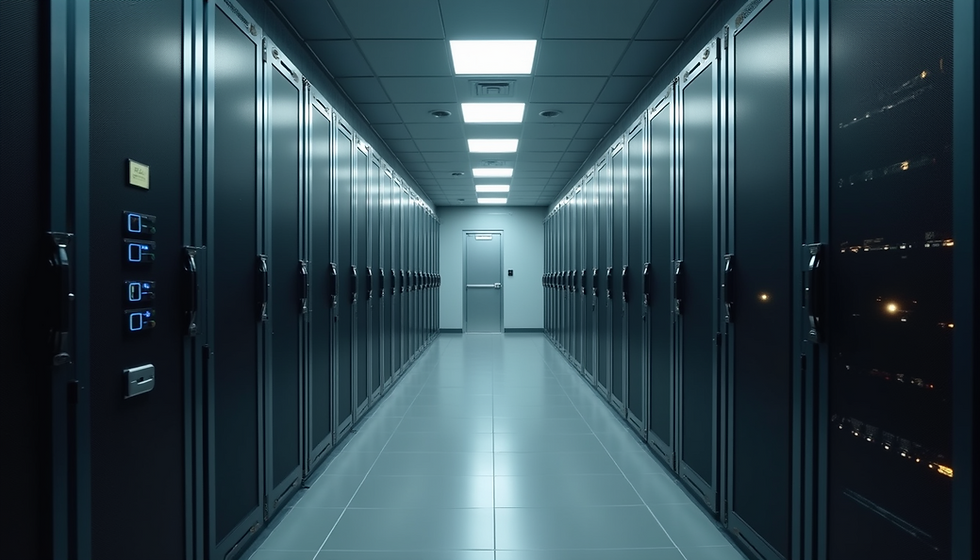Navigating Industry-Specific ERP Needs for Manufacturing Retail and Services
- Justin Pennington
- Sep 10, 2025
- 4 min read
In today's fast-paced business landscape, companies face immense pressure to adapt and thrive. Efficiently managed operations are at the heart of this adaptation. Enterprise Resource Planning (ERP) systems have emerged as critical tools for businesses of all types. They simplify complex processes and enable better decision-making. However, each sector—manufacturing, retail, and services—has distinct requirements for its ERP systems. This blog post will explore the unique needs of each industry when choosing ERP solutions.
Understanding ERP Systems
ERP systems are integrated software platforms designed to manage and automate key business processes. They consolidate information into a centralized database, allowing departments to share data in real time. This integration is essential for improving operational efficiency. While all ERP systems serve the same core purpose, the specific features needed can vary widely between different industries.
The Manufacturing Industry
Manufacturing has its own set of challenges that necessitate tailored ERP solutions. These challenges often involve supply chain complexities, quality control, and production efficiency. Here are some must-have features for ERP systems in manufacturing:
Supply Chain Management: For manufacturers, effective supply chain management is critical. ERP systems should include tools for:
Stock monitoring, which can reduce excess inventory by up to 30%.
Streamlined procurement processes that improve supplier communication.
Logistics that enhance delivery times, crucial for maintaining customer satisfaction.
Scheduling production runs that align with demand forecasts.
Managing work orders to boost machine utilization by at least 20%.
Inspection processes that ensure products meet defined specifications.
Compliance tracking to help companies avoid costly penalties, which can reach up to 5% of revenue in some industries.
Tools for detailed expense tracking across materials, labor, and overhead, helping manufacturers identify cost-saving opportunities.
Support documentation and reporting for compliance, thus reducing risk and potential fines.
Production Planning and Scheduling: Efficient production is essential. ERP should offer capabilities for:
Quality Control: To meet customer expectations and industry standards, ERP systems need robust quality management features, enabling:
Cost Management: Keeping production costs in check is critical. ERP systems should provide:
Regulatory Compliance: Many manufacturers must adhere to strict regulations. ERP systems need features that:

The Retail Industry
Retail businesses operate in a constantly changing environment. To thrive, retail ERP systems must prioritize inventory management, customer engagement, and sales analytics. Here are key features for retail ERP systems:
Inventory Management: Retailers must have real-time visibility into their inventory. ERP systems should excel in:
Tracking stock levels to prevent stockouts that impact sales, which can lead to a loss of up to 20% in potential revenue.
Prompting reorders when stock reaches critical levels.
Accurate sales tracking helps businesses adjust strategies based on customer buying patterns.
Data analytics that allow retailers to personalize marketing efforts, potentially increasing customer retention rates by 25%.
Management of online orders and integration with major marketplaces, making up approximately 25% of total retail sales in recent years.
Reporting functionalities should help identify trends and forecast demand, enabling smarter pricing strategies.
Point of Sale (POS) Integration: A robust connection with POS systems is essential:
Customer Relationship Management (CRM): Understanding customer preferences is vital for success in retail. ERP solutions should include:
E-commerce Capabilities: With online shopping on the rise, ERP systems must accommodate:
Sales Analytics: Retailers need powerful analytics tools to make informed decisions:

The Services Industry
The services sector is diverse, comprising businesses like consulting firms and healthcare providers. ERP systems for services must emphasize project management and client relationship management. Here are the critical needs for ERP in this industry:
Project Management: Many service organizations juggle multiple projects. ERP systems should offer:
Tools for tracking progress and managing budgets effectively, which can lead to project completion rates improving by 15%.
Software solutions should help organizations optimize employee schedules and track billable hours to maximize profitability.
ERP systems need functionalities to track interactions, manage contracts, and evaluate client satisfaction levels.
Invoicing processes to ensure timely payments, which can directly affect cash flow and operational stability.
Track key performance indicators (KPIs) and evaluate overall business performance, leading to strategic improvements.
Resource Allocation: Efficient resource management is vital:
Client Relationship Management: Strong client connections are essential:
Billing and Invoicing: Accurate billing is crucial. Systems should streamline:
Performance Analytics: Measuring performance helps improve service quality. ERP systems must provide tools to:
Choosing the Right ERP System
Selecting the right ERP system requires careful consideration of specific industry needs. Key factors to evaluate include:
Scalability: Choose a system that can grow with your business. This flexibility is critical as companies expand their operations.
Customization: Look for ERP solutions that allow for adjustments to fit your unique processes. Customization can ensure that the software works precisely as your business needs.
Integration Capabilities: Effective ERP systems should work well with your existing software. Smooth integration reduces data silos and enhances operational efficiency.
User-Friendly Interface: A straightforward interface is essential for user adoption. The easier it is for employees to navigate the system, the more productive they will be.
Vendor Support: Reliable support is vital. Choose a vendor that offers comprehensive training and resources to help you overcome challenges.
Summary of Insights
Navigating the diverse ERP needs across manufacturing, retail, and services can be complex. However, understanding the specific requirements of each industry allows organizations to make better decisions. By selecting an ERP system tailored to their particular needs, businesses can improve efficiency, enhance decision-making, and foster growth. As market demands continue to evolve, investing in a suitable ERP solution is crucial for maintaining competitiveness and satisfying customer expectations.




Comments